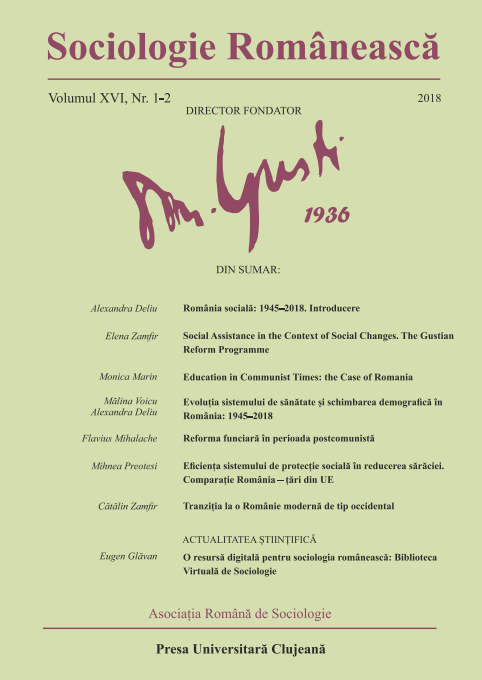Education in Communist Times: the Case of Romania
Education in Communist Times: the Case of Romania
Author(s): Monica MarinSubject(s): Sociology of Education
Published by: Editura Eikon
Keywords: Romania; education; policies;communism;
Summary/Abstract: The paper analyses the educational policies in Romania for the period 1948–1989. The purpose is to examine the main features that defined the educational system during the communist period, thus providing the background for a better understanding of the strengths and the weaknesses of education during these years. The paper consists of five distinct sections: (i) legislative reforms; (ii) human, material and financial resources; (iii) access and participation; (iv) educational environment; (v) voice of the pupils and students. Whenever data are available, the paper uses a comparative perspective with other communist countries (Bulgaria, Czech Republic, Hungary and Poland), particularly regarding the access to and participation in education. Several achievements in the field of education are present in communist Romania: (i) the positive evolution of participation in education, particularly regarding elementary education; (ii) the campaign to eradicate illiteracy was successful, at least in terms of numbers; (iii) vocational education displayed spectacular increases in the communist period; (iv) the number of students enrolled in higher education increased significantly; (v) expansion of support forms to broaden participation, especially in the higher education system. Nevertheless, there are also a series of negative aspects, such as access and participation of particular groups to education – children with disabilities, children from placement centres, pupils, and students of “unhealthy social origin”. A selection of oral history fragments completes the picture about the educational environment.
Journal: Sociologie Românească
- Issue Year: 16/2018
- Issue No: 01+02
- Page Range: 27-41
- Page Count: 15
- Language: English

